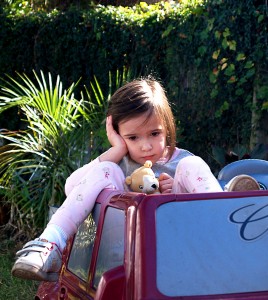
More than one million American children suffer from the anxiety disorder known as Obsessive-Compulsive Disorder, or OCD. What’s even scarier is that many of these children, unlike most adults with OCD, have no clue that they have a problem. They aren’t aware that their thoughts and behaviors are not normal because they haven’t got the life experience to make that distinction. If they do realize something’s wrong or they begin to feel like they are “going crazy”, they can be too embarrassed to tell an adult about it; because of this, it’s important for parents and other caretakers to be aware of OCD and its signs and symptoms so they can detect it in children. Once diagnosed, a parent can help guide the child through the recovery process.
Beyond the characteristic obsessions and compulsions that give Obsessive-Compulsive Disorder its name, children who suffer from OCD can also display signs of severe stress, sleep deprivation, depression, agitation, and social and behavioral difficulties. They might cause conflicts within the family over small details like the way a table is arranged or where an object is placed.
If your child does have OCD, know that help is readily available. This illness is not the fault of your parental skills, but is caused by a brain malfunction that can be fixed with proper treatment and plenty of love and support from the child’s family.
PsychCentral – When Your Child Has Obsessive-Compulsive Disorder





